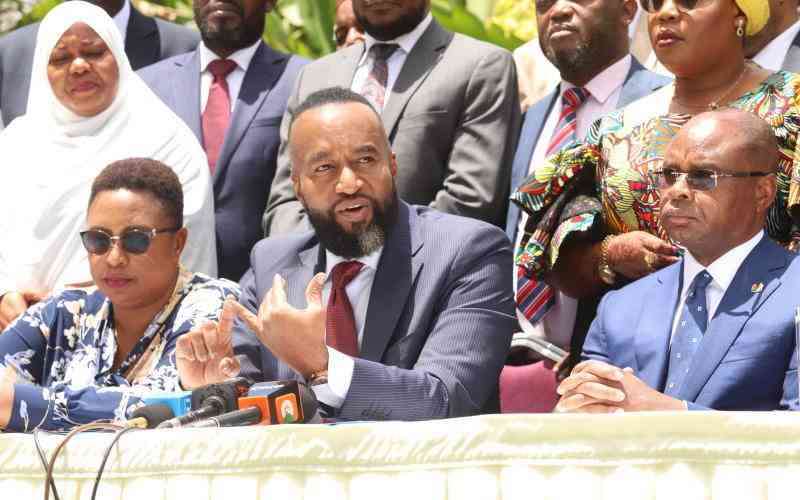×
The Standard e-Paper
Stay Informed, Even Offline

Barely a year after a falling out, former Mombasa Governor Hassan Joho (Mombasa) and Senate Speaker Amason Kingi appear to have buried the hatchet for the sake of uniting Coast leaders.
The political grapevine was rife with talk of a unity of purpose after the two held a meeting with cabinet secretaries Salim Mvurya and Aisha Jumwa, six governors, senators, MPs, county assembly speakers, and former governors in Nairobi.